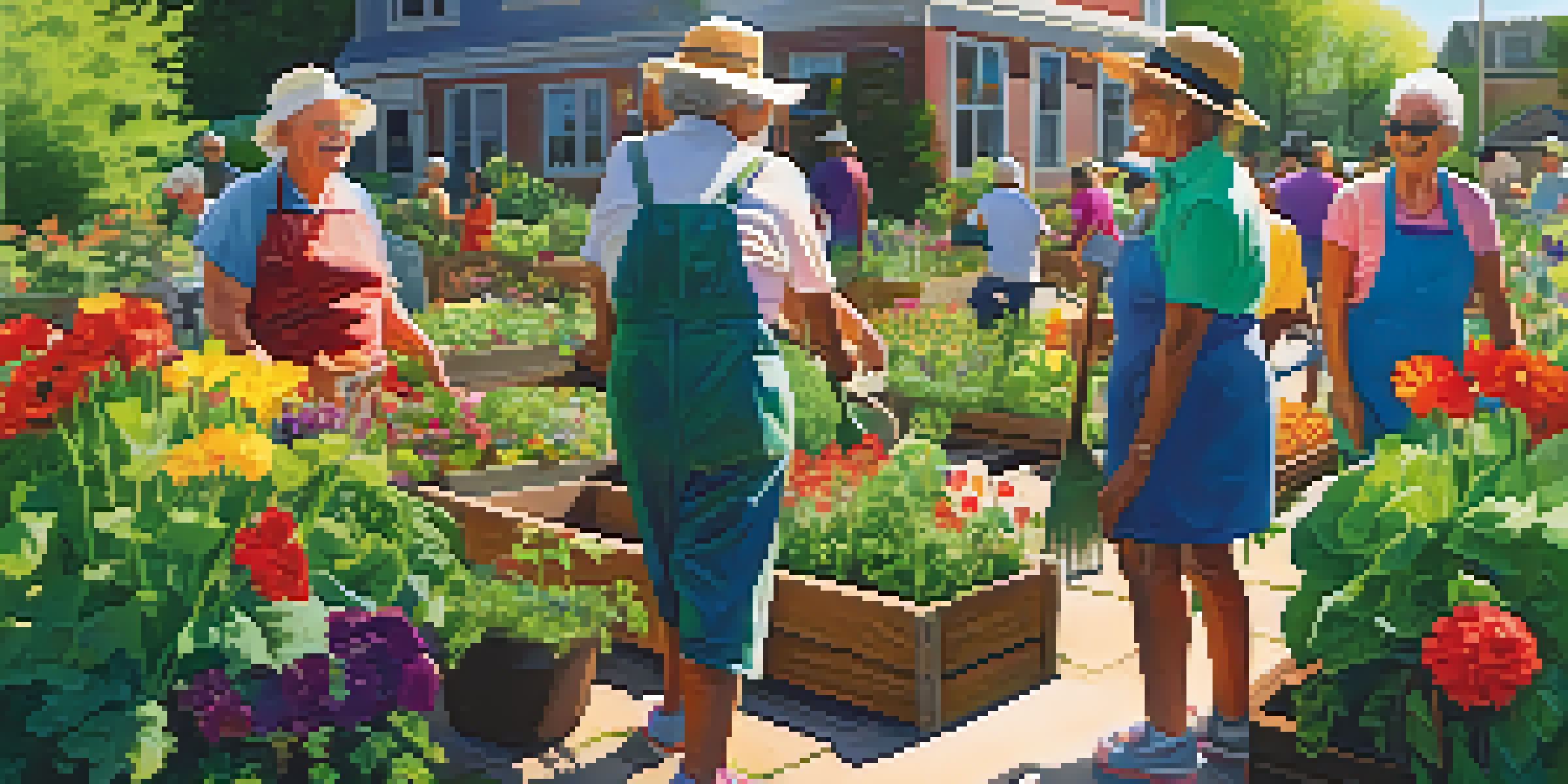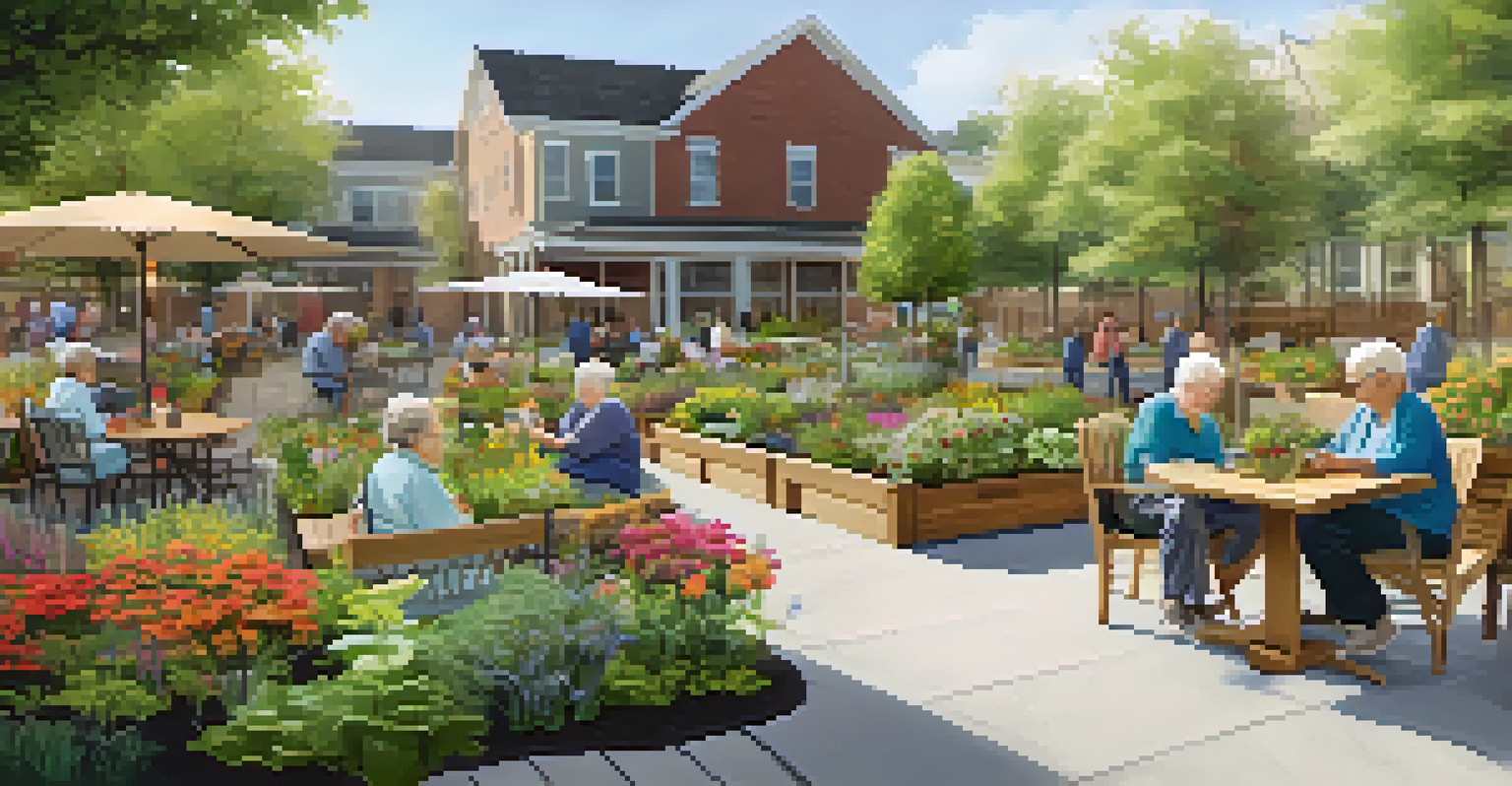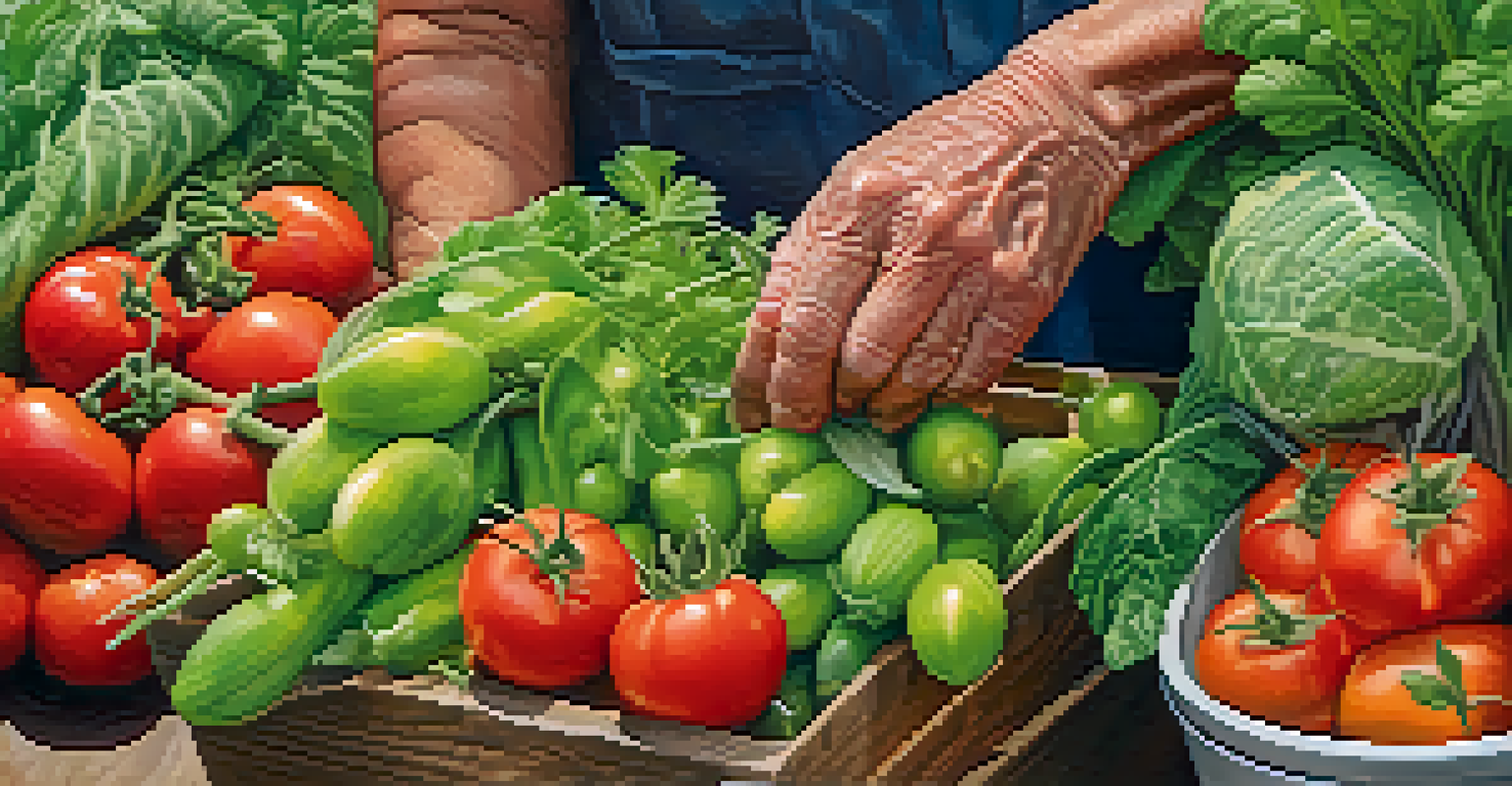Community Gardening and Its Role in Promoting Healthy Aging

Understanding Community Gardening and Its Benefits
Community gardening involves people coming together to cultivate shared spaces, often in urban areas. It fosters a sense of belonging and connection among participants, making it much more than just growing plants. Gardens can be a source of fresh produce and a platform for education about healthy eating.
Gardening is a way of showing that you believe in tomorrow.
These green spaces not only enhance the beauty of a neighborhood but also provide opportunities for social interaction. Engaging in gardening activities helps individuals build relationships, reducing feelings of loneliness and isolation, which can be especially beneficial for older adults. It's a nurturing environment where people can share knowledge and experiences.
Moreover, community gardens can serve as a resource for learning about sustainable practices. Participants often exchange ideas on composting, organic gardening, and environmental stewardship, enriching their understanding of healthy living. This collective knowledge can empower older adults to make better food choices and appreciate the cycle of nature.
The Physical Benefits of Gardening for Older Adults
Gardening is a low-impact physical activity that can significantly benefit older adults. It involves various movements such as bending, stretching, and lifting, which can help improve flexibility, strength, and balance. These physical benefits are crucial in maintaining mobility and reducing the risk of falls among seniors.

Engaging in gardening can also promote cardiovascular health. The moderate exercise involved in planting, weeding, and harvesting can help lower blood pressure and improve circulation. This not only contributes to physical well-being but can also enhance overall endurance and energy levels.
Community Gardens Boost Well-Being
Engaging in community gardening fosters social connections and enhances mental health for older adults.
Additionally, spending time outdoors while gardening has been linked to improved mental health. Sunlight exposure can increase Vitamin D levels, which is essential for bone health, while the act of gardening itself can reduce stress and anxiety. This combination offers a holistic approach to healthy aging.
Mental Health Benefits of Community Gardening
Mental health is a vital aspect of healthy aging, and community gardening provides a unique platform for fostering emotional well-being. The act of cultivating plants can be meditative, allowing individuals to focus on the present moment and alleviate worries. This mindfulness can lead to reduced symptoms of depression and anxiety.
The greatest gift of the garden is the restoration of the five senses.
Gardening also encourages creativity and problem-solving, as participants decide what to plant and how to care for their crops. This engagement stimulates cognitive function, which is essential for aging adults. Moreover, nurturing plants can instill a sense of purpose and accomplishment, boosting self-esteem and confidence.
Social interactions within community gardens further enhance mental health. Sharing the experience of gardening with others can create meaningful friendships and support systems. These social connections are vital in combating loneliness, ensuring that older adults feel valued and included.
Nutritional Advantages of Growing Your Own Food
One of the most rewarding aspects of community gardening is the access to fresh, nutritious produce. Growing fruits and vegetables allows older adults to incorporate healthier options into their diets, which is crucial for maintaining overall health. Consuming a variety of fresh foods can lead to improved energy levels and better immune function.
Moreover, community gardens often promote education around nutrition. Workshops and events can teach participants about the nutritional benefits of the food they grow, helping them make informed dietary choices. This knowledge can be empowering, encouraging older adults to take control of their health through what they eat.
Gardening Improves Physical Health
Participating in gardening activities promotes physical fitness and reduces the risk of falls among seniors.
Additionally, the act of harvesting and preparing homegrown food can reignite a passion for cooking. Engaging with food in this way fosters a deeper appreciation for nutrition and can lead to healthier eating habits. This is especially important for seniors, as proper nutrition plays a key role in healthy aging.
Fostering Intergenerational Relationships through Gardening
Community gardens can create a unique space for intergenerational interaction, bringing together people of all ages. This shared experience can break down barriers, allowing older adults to connect with younger generations in meaningful ways. Engaging with children and teenagers can invigorate seniors and provide them with a sense of purpose.
These interactions can also promote the transfer of knowledge across generations. Older adults can share their gardening wisdom and life experiences, while younger participants can introduce new techniques and technologies. This exchange fosters mutual respect and understanding, enriching the gardening experience for everyone involved.
By working side-by-side, community members can build strong relationships that extend beyond gardening. These connections can lead to lasting friendships and support networks, which are essential for emotional well-being as people age. The synergy of generations working together creates a vibrant, nurturing environment.
Community Gardens as a Tool for Environmental Awareness
Community gardening plays a significant role in promoting environmental awareness among participants. By engaging in sustainable gardening practices, older adults can learn about the importance of biodiversity, soil health, and water conservation. This knowledge is vital for creating resilient communities in the face of climate change.
Working in a garden also fosters a connection to nature, encouraging individuals to appreciate their local ecosystem. This appreciation can lead to more environmentally conscious behaviors, such as reducing waste and recycling. Understanding the impact of these actions can be empowering, especially as older adults strive to leave a positive legacy for future generations.
Access to Fresh Nutrition
Growing their own food allows older adults to enjoy fresh produce, leading to healthier dietary choices.
Furthermore, community gardens can serve as educational hubs, offering workshops on sustainable practices like composting and organic gardening. These initiatives can inspire participants to adopt eco-friendly habits in their daily lives, reinforcing the idea that everyone can contribute to a healthier planet, regardless of age.
Creating Accessible Community Gardens for All
Accessibility is a crucial factor in ensuring that community gardens can be enjoyed by everyone, especially older adults. Designing gardens with features like raised beds and wide pathways can make gardening easier for those with mobility challenges. This thoughtful design ensures that everyone can participate in nurturing the garden, regardless of physical ability.
Additionally, incorporating seating areas allows for rest and socialization, making the gardening experience more enjoyable. Providing tools specifically designed for older adults can further enhance their ability to engage with the garden. These adaptations not only promote inclusivity but also encourage a sense of ownership among all participants.

Creating accessible community gardens requires collaboration with local organizations and city planners. By working together, communities can develop gardens that reflect the needs and desires of their members. This collective effort fosters a sense of pride and investment in the garden, ensuring its sustainability for years to come.